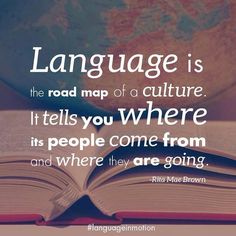
Unlike many international students for whom English is a second language, issues of communicating in a foreign language were the least of my concerns when I boarded the plane from Malaysia to the U.S. for the first time in August 2012 to begin my undergraduate studies. All the materials I had consumed in my life for leisure or entertainment – books, movies, music etc. – had been in English. Sure, I spoke Malay and Mandarin, but I considered myself most fluent in English. What could possibly be the problem?
Or so I thought until I tried explaining certain aspects of my culture that required my use of Malay and Mandarin because I didn’t know of an equivalent word in English. For instance, I was stumped the first time I had to explain nasi lemak (a common Malay dish back home) to friends of other nationalities. I found it difficult to explain the rice dish to people outside my culture without using words like sambal and ikan bilis, words that needed no explanation for people in my culture who were familiar with its taste. The English words I used did not do justice in conveying the richness and flavor of the dish that my fellow Malaysians and I had grown up consuming for either breakfast, lunch or dinner.
For the first time, I was struck by the extent to which language is inextricably linked to culture, and thus, national identity, so much so that I had taken it for granted on a day to day basis until I interacted with people outside my culture.
Consequently, the imposition of colonial language through decades of colonial rule raises issues as to its impact on the construction of language and culture in the postcolonial society. Underlying the readings this week is the fundamental question of whether a culture can exist in the language of its colonizer. Is the death of the culture of the postcolonial nation inevitable in the continued use of the language of the colonizer? Each of these authors provide divergent perspectives and answers to this crucial question.
Ngugi Wa Thiong’o places language at the “heart of the two contending social forces in the Africa of the twentieth century” in “The Language of African Literature”, contending that colonial domination over the native’s language is synonymous with cultural domination. In his view, the continued use of the colonial language perpetuates the distortion of the African mentality to uphold the ‘fatalistic logic of the unassailable position of English in our literature’ (146) to the detriment of African languages and culture. Thus, he asserts that African literature can only be written in an African language to truly embody and convey the African culture and experience. Any writer that attempts to do so in the language of the colonizer is bound to misrepresent the realities of the African people (i.e., the peasantry and working class), who do not have the same complexes about their languages and cultures as the bourgeoisie (159).
In his poem, “A Latin Primer”, Derek Walcott’s speaker propounds a similar idea of death to his native language in his immersion in the language of the colonizer. There is a profound desire to find his voice – “I had nothing against which to notch the growth of my work…no language but the shallows in my long walk” – as he engages with “distant literatures”. As a Latin professor later, he professes a deep sense of guilt at inculcating the same conflict in his students of alienation from their native language and culture, and ultimately death. Like Ngugi, he rediscovers his voice in the language of his people – “and that native metaphor made by the strokes of oars…made one with my horizon.”
The discussion of the impact of colonial legacy on language is, in essence, an extension on the discussion last week on national identity, which brings us back again to issues of ascribing social constructs with the status of “natural” entities. If Anderson’s piece last week served as a reminder of the cultural roots of the construct of the nation, Ferdinand Saussure’s linguistic model (which I read in literary theory this week) reveals language itself as a construction, deriving its relational meaning arbitrarily from social interactions as opposed to being endowed with an inherent, substantive meaning. This image from the Business Insider beautifully illustrates how “authentic” native languages themselves have evolved over time:

With this in mind, Ngugi’s thesis, while compelling, is problematic in its implicit assumptions regarding the nature of language.
I agree with what Ngugi and Walcott are saying to the extent that there is a certain death that occurs when the colonial language disrupts existing ties between a society’s language and its culture. Ngugi is also right about the disconnect between the language of the intellectual bourgeoisie and the language of the peasantry. However, to claim that one embodies a more authentic national culture over the other commits the same imperialist fallacy of drawing simplistic boxes of binary oppositions and fails to account for the vast range of experiences and influences that constitute a national culture. Invoking the very notion of an ideal “African” literature and imposing strict parameters around what that ideal means employs the same essentialist mode of thinking that characterized the colonial model of representing the colonial subject as an Other (97). If language is indeed a social construct, according to Saussure, then it follows that it should be amenable to adaptation and evolution. As such, while I understand the need for the postcolonial nation to reclaim ownership of its culture, retaining these binary oppositions by asserting an “authentic” national language forces a system that is characterized by dynamism and fluidity into a static mold.
In direct contrast to Ngugi, Salman Rushdie presents a viewpoint that is more reflective of language as a fluid and dynamic construct. In “Commonwealth Literature Does Not Exist”, he illustrates the difficulties of trying to define ‘Commonwealth literature’, and the subsequent problems that arise from this simplistic categorization. For example, are Commonwealth citizens writing in languages besides English permitted in the club? What about writers like Ngugi who revert back to their native language? He likens this phantom category to an exclusive ghetto, created for persons writing in the English language “who are not themselves white Britons, or Irish, or citizens of the United States of America.” Therefore, he concludes that ‘Commonwealth literature’ does not, and should not exist, because “if it did not, we could appreciate writers for what they are…we could discuss literature in terms of its real groupings…” Rushdie’s closing comments further sheds light on the conflict between the two language spheres: “The English language ceased to be the sole possession of the English some time ago…in which case, it’s time to admit that the center cannot hold.” The crux of the conflict is this: that the British colonial enterprise inculcated whole generations of English speakers well-versed in Western values in their colonies yet insisted on retaining an exclusive British identity. The same can be said of the other European colonial powers.
Again, the inadequacies of current national identities as a construct come to the fore. Ngugi’s solution of asserting an “authentic” national identity inevitably commits the same errors of exclusion, for the pre-colonial society was not characterized by a single language and culture, a fact that Rushdie highlights in regards to India. Centuries of intermingling between the cultures of the colonialist and the native has created generations of hybrid peoples that are displaced by the drawing of boxes of binary oppositions on both sides. The tensions that arise from this displacement are illustrated by the narrator in “The Courter”, who is a product of his Indian heritage and his British education. He is both Indian and British, but not according to the rigid boxes of “authentic” national identity. Thus, he demonstrates familiarity with Western culture yet is characterized as an outsider at school because his language marks him as different; he frequently acknowledges his Indian heritage yet wishes to obtain British citizenship. Because he is both Indian and British, he belongs to neither culture, and thus acutely feels the ropes of East and West pulling him in different directions.
The fact is that the legacy of colonialism has forever altered the socio-cultural landscape of the postcolonial nation. In regards to language, it has created fissures between the colonial-educated elite and a peasantry still grounded in their native tongue, among many other issues. But these issues are a product of the colonial experience that have become part and parcel of postcolonial culture. I don’t see how the postcolonial nation can isolate and disentangle the threads of colonial influence without unraveling the whole. The very fact that the postcolonial nation stands on the European construct of a nation is testament to its inextricable ties to the colonial culture.
Ultimately, the battle between the languages stems from the fact that neither side is willing to acknowledge and accommodate the legacy of colonialism. Having spent centuries in control of the world order, the “first” world is terrified of the consequences should the ‘center’ cease to hold. Thus, it has instilled this fear in the rest of the world as well, in the values it has disseminated regarding national identity and the use of standard English as “a construction of imperial rhetoric that constantly separates ‘center’ from ‘margin’”(166). Moving forward, however, such ideals of an “authentic” national language and culture will prove even more difficult to preserve given the colonial establishment of diasporic communities and the increasing porosity of borders in the age of globalization. The threat of death to a native language and culture in the colonialist’s language is reified only in the conceptualization of language and culture as static, “natural” entities. The continued subscription to these rigid ideals only serves to obscure the nature of language and culture as social, not natural constructs, and impedes the progress of all nations.

You are so good at showing how these essays MATTER to the world. And I love how you are pushing against them as well. This post would be a solid one to share with future employers or as part of a portfolio. Really nice work. The only suggestion I have is to find links to the articles as well so you can send the reader to them if they are interested in reading more. Thank you for writing this.
LikeLike
Thank you for reading it! I have added the links to the articles.
LikeLike